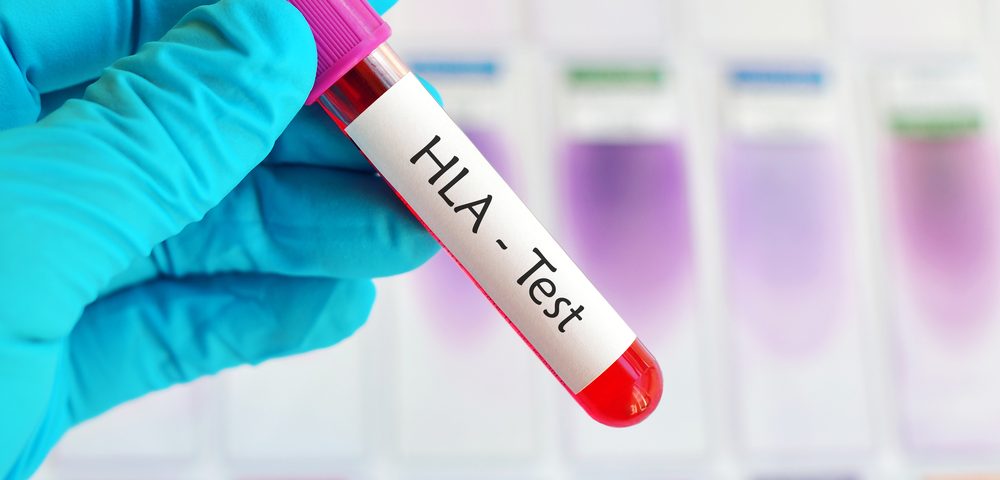Lymphoma patients who undergo a hematopoietic stem cell transplant (HSCT) from a haploidentical-matched (tissue-matched) donor have similar survival rates to those receiving HSCT from HLA-matched sibling donors, and a lower risk of developing chronic graft-versus-host disease (GVHD). These findings, researchers said, could make “allogeneic transplantation widely available for patients with lymphoma.”
The study, “Reduced-Intensity Transplantation for Lymphomas Using Haploidentical Related Donors Versus HLA-Matched Sibling Donors: A Center for International Blood and Marrow Transplant Research Analysis,” was conducted by researchers at the Center for International Blood and Marrow Transplant Research in Wisconsin, and published in the Journal of Clinical Oncology.
Despite remarkable advances in lymphoma therapy, HSCT from a related donor is the only therapy that potentially cures patients with high-risk relapsed or refractory lymphomas.
Human leukocyte antigen (HLA) typing is used to determine how closely the cells derived from the donor resemble those in the patient that is about to receive HSCT, and it is not the same as ABO blood typing. HLA are proteins, or markers, used by the immune system to distinguish between cells that belong in our body from those that do not.
There are more than 2,500 known HLA markers, but the HLA test is commonly based on eight or 10 of these markers. Since HLA markers are inherited, half from our father and half from our mother, each brother and sister has a 25 percent chance of matching our HLA markers. However, about 70 percent of the patients who require a transplant do not have a suitable donor in their family, and require transplants from unrelated haploidentical donors.
“For patients who need allogeneic transplants, HLA-matched sibling donors are considered the gold standard,” Nilanjan Ghosh, MD, PhD, director of the lymphoma program at Carolinas HealthCare System’s Levine Cancer Institute, said in a press release. “If a matched sibling donor is not possible, then a matched unrelated donor search is initiated. Haploidentical donors are readily available, but in the past, these donors have not been regularly used due to the risk for excessive GVHD.”
The team compared outcomes in patients undergoing haploidentical or HLA-matched allogenic HSCT after reduced-intensity or nonmyeloablative conditioning regimens. The haploidentical group, composed of 180 patients, received post-transplantation cyclophosphamide as GVHD prophylaxis, and the 807 patients on the HLA-matched group received calcineurin inhibitor-based GVHD prophylaxis.
After a median follow-up of three years, the researchers found that both groups had similar 28-day neutrophil recovery, but a significantly greater proportion of patients undergoing HLA-matched HSCT reached a 28-day platelet recovery.
Although patients undergoing HLA-matched and haploidentical HSCT had similar cumulative incidence of acute GVHD (25% versus 27%), chronic GVHD was more common in patients who received HLA-matched HSCT (45%) than in haploidentical HSCT (12%).
Nonetheless, both groups had similar rates of three-year nonrelapse mortality, relapse or progression, progression-free survival (PFS), and overall survival (OS).
“It was reassuring to see that the low incidence of chronic GVHD was not associated with an increased risk for relapse,” said Ghosh. “The OS and PFS outcomes were nearly identical between the two groups.”
“This study demonstrated that haploidentical HSCT has equal efficacy and lower toxicity — especially with regard to chronic GVHD — compared with the ‘gold standard’ donor choice,” Ghosh concluded. “This information — coupled with the widespread availability of haploidentical donors, the shorter time-to-transplant and lower costs compared with the other alternative donor choices — should make allogeneic transplantation widely available for patients with lymphoma.”


